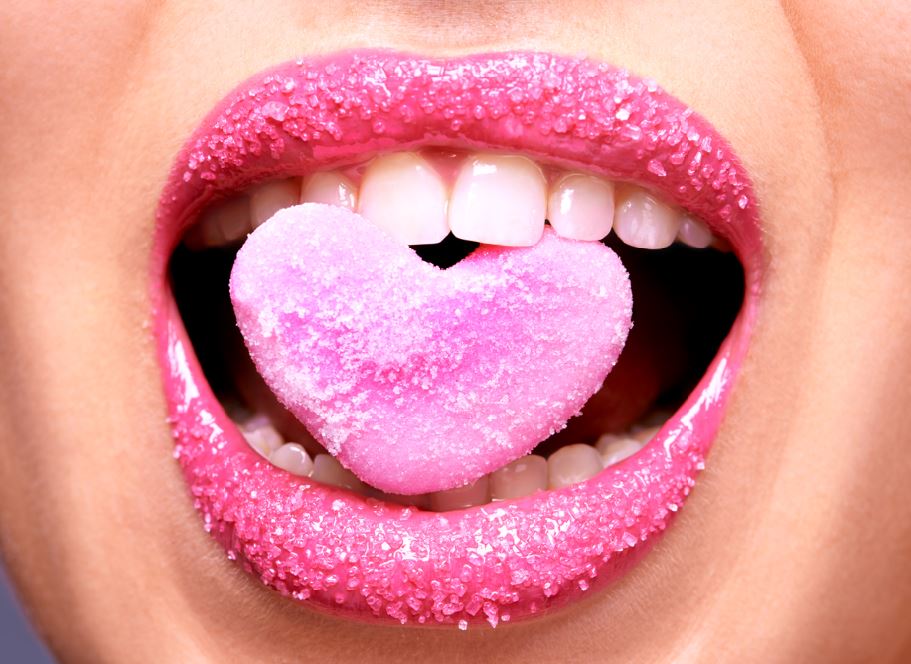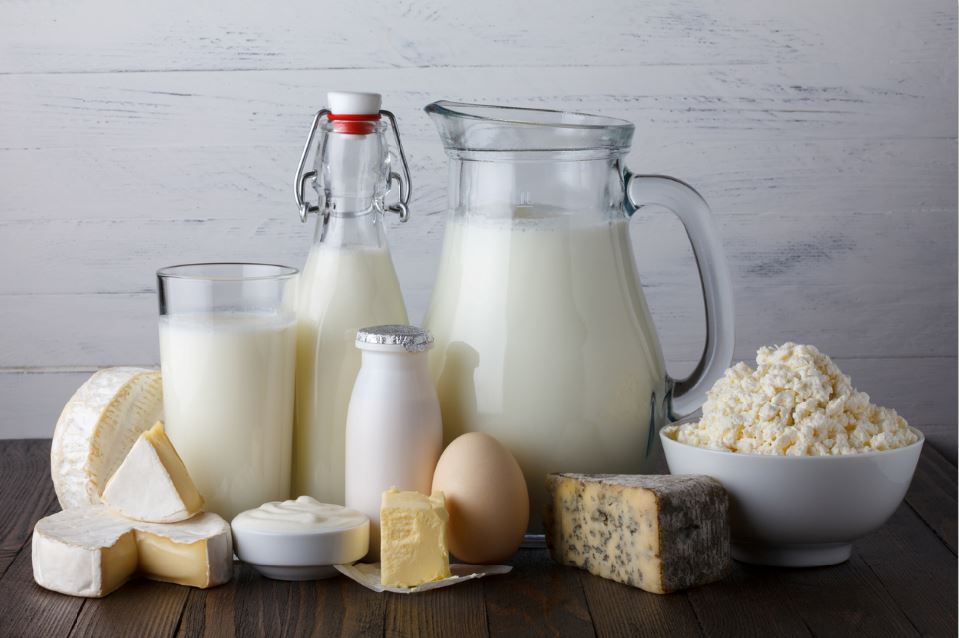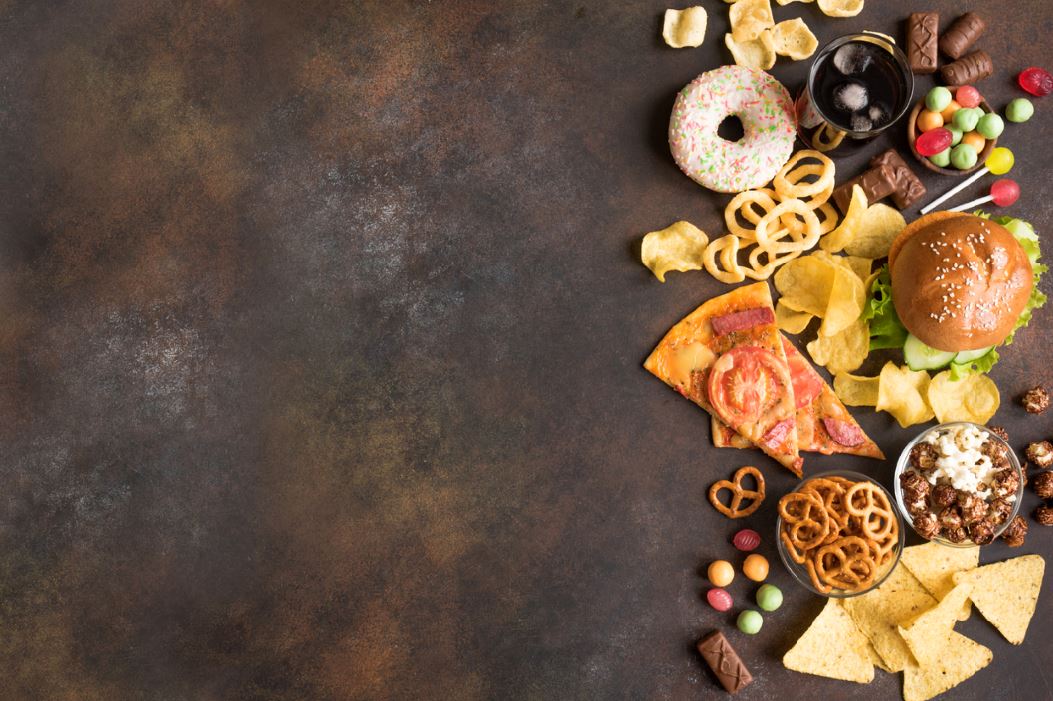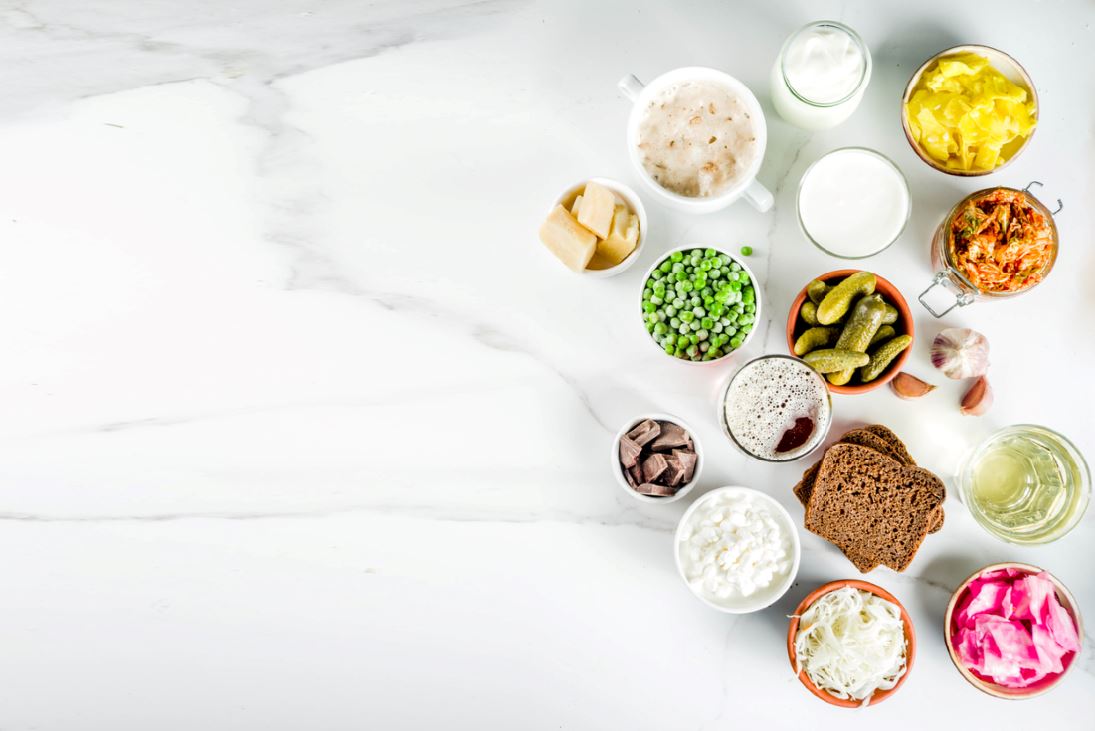Bloated stomach? Gassy? Tummy cramps? These common symptoms can be uncomfortable and embarrassing. Nutritionist Rick Hay reveals 5 causes of bloating and what you should do to help beat the bloat
Gut symptoms such as a bloated stomach, flatulence, constipation and tummy cramps can make your life an uncomfortable living hell.
Bloated, gassy, stomach cramps – are some of the most Googled online health searches. Why? Because 70 per cent of people regularly experience bloated belly troubles.
Those who do suffer, will know that a bloated stomach can prompt a whole host of issues that go far beyond physical discomfort – embarrassment, low self-esteem, low confidence and low mood are just some of the other downfalls caused by bloating.
Bloated, gassy, stomach cramps – are some of the most Googled online health searches
Causes of bloating range from indigestion (from eating too fast, too much, too fatty), food sensitivities, drinking carbonated beverages, PMS, constipation or overindulgence.
That’s why best way to prevent symptoms of stomach bloating and gas, is an appropriate diet based on the foods your body is able to digest easily – regular exercise is also advised.
Although a healthy diet and regular exercise will help, if you’re still experiencing bloating symptoms here are some foods and drinks you should try to avoid.
What to avoid to help your bloated stomach…
#1 Adios alcohol
We hate to break it to you, but that after-work Chardonnay might not be such a good idea if you’re trying to ‘beat the bloat’.
Recent research by the British Gut Project shows that drinking spirits in particular is bad news for your gut health.
This is because alcohol causes inflammation and swelling in the body, which can result in gas, discomfort, and a bloated belly.
For women it may also increase oestrogen levels, which tend to promote weight gain in the more female areas; bum, thighs and hips.
Not only that, but alcohol tends to make us bloat as it puts a burden on the liver and potential electrolyte mineral imbalance that can create fluid retention.
#2 Avoid wheat, rye and barley aka try and go gluten free
Bloating and discomfort are the most common symptoms of gluten intolerance.
Wheat, Rye and Barley contain a protein called gluten, which can often cause bloating, gas, stomach pain, and even diarrhea for some people.
If you usually have toast in the morning, reach for a gluten-free alternative. If you enjoy pasta or rice for lunch and dinner, these days almost every supermarket offers a gluten free section where you can stock up on products that won’t give your intestines a hard time.
almost every supermarket offers a gluten free section
If you don’t want to give up wheat completely, try just giving it up on alternative days and see if your body tolerates a little every now and then.
Intolerances can come in different levels of severity so you may well get away with not overloading the system. Of course, if you suffer from coeliac disease this is not an option.
#3 Sugar is a no-no
This one is a no-brainer, but a hard one to follow.
Too much sugar can lead to an imbalance of the beneficial bacteria and non-beneficial bacteria found in our gut which can lead to bloating and excessive gas.
Fructose, or fruit sugar, is added to many processed foods and can be difficult to digest for many people which therefore leads to bloating. Be aware that sugar alternatives such as sweeteners can also cause gas and bloating.
Soft drinks are out too I’m afraid as these too include artificial sweeteners.
Too much sugar can lead to an imbalance of the beneficial bacteria and non-beneficial bacteria
The sweetener sorbitol in particular should be avoided, as this is one of the main sweeteners that is difficult to digest with studies suggesting that a large number of adults could be suffering from sorbitol-induced abdominal symptoms and diarrhoea.
Other sweeteners may also cause bloating too, including maltitol, fructose and xylitol – so read the label carefully.
Xylitol especially can be bad news for the gut if consumed in excess. Too much xylitol could cause stomach discomfort and diarrhea – both bad news if you’re wanting to avoid a bloated tummy.
#4 Ditch the dairy
Dairy products can also be a source of intestinal distress for many people as lactose (milk sugar), can be hard to digest and cause your stomach to rebel.
In fact, about 65 per cent of the world’s population can’t break down lactose. If you are unsure as to whether you come under this category, it is safer to avoid dairy at first until you can work out other possible causes of your bloating. You may also be interested in asking your doctor for a food sensitivity test.
Like gluten-free options, there are also plenty of diary alternatives on the market too, so there has never been an easier time to cut down on dairy products.
#5 Processed foods are bad news
Processed foods are foods that have been deliberately changed, chemically processed and come hand in hand with additives, artificial colours, bulking agents, preservatives and artificial sweeteners.
All of this bombards our digestive tract and can lead to gut dysbiosis (bacterial imbalance), bloating and discomfort – not to mention weight gain.
Processed foods include carbonated drinks, cereal, microwave meals, sweets, crisps, donuts and anything else nature did not intend.
Processed foods are foods that have been deliberately changed
This means that your best bet to help your bloated stomach is eating foods that are natural or very close to their original natural state like fish, eggs, whole grains, nuts, veggies and dark leafy green.
Check the ingredients list first, if you can’t pronounce it, it might not be good for you.
Next time you’re umm-ing and ahh-ing over a product ingredient list, ask yourself, ‘Can I buy these ingredients easily at a supermarket or health food store?’ If you can’t, maybe think twice about buying it or do some research first.
Other ways to help bloating…
Reduce stress
You may be running at one hundred miles per hour, or anxious about Covid-19 but try not to let stress get the better of you.
Over-stressing is bad news for your gut and can can adversely effect digestive function worsening symptoms of bloating and stomach discomfort.
stress is considered a key cause of IBS symptoms
Evidence from clinical and experimental studies show that psychological stress (acute or chronic) can have a marked impact on intestinal sensitivity and bloating.
Indeed, for those who suffer from Irritable Bowel Syndrone (IBS) stress is considered a key cause of IBS symptoms, suggesting that whatever is going on in your mind could be having a direct impact on your gut health.
A 2014 review in the World Journal of Gastroenterology authors reported that, ‘More and more clinical and experimental evidence has showed that IBS is a combination of irritable bowel and irritable brain’.
Take a digestive enzyme
Digestive enzymes are substances produced by our bodies that help us digest and break down the foods we eat.
As food travels through your digestive system, different enzymes break down specific food types. For example, lipase (produced by the gut) supports the conversion of fat into fatty acids and cholesterol, and amylase (also in the gut) is used in transforming carbohydrates into simple sugars.
The body creates digestive enzymes in the saliva, pancreas and gut small intestine
If your body has a hard time producing any of these enzymes, nutrients may not be absorbed as efficiently, which may impair digestion and lead to bloating.
The body creates digestive enzymes in the saliva, pancreas and gut small intestine, but they can also be found in different foods and supplements which can be a big help moving the process of digestion along much faster.
Indeed, a 2018 study found that deficiency in digestive enzymes is believed to be one of the contributing factors for those who suffer from functional dyspepsia (a term used to describe a group of symptoms affecting the gastrointestinal tract, including stomach discomfort, nausea, bloating and belching).
Some fruits and vegetables are excellent natural sources containing digestive enzymes including kiwi, papaya, pineapple, bananas, avocado, mangoes and pineapple.
Fermented foods such as apple cider vinegar, sauerkraut, kimchi, miso, kefir, yoghurt and honey can also help as they’re rich in digestive enzymes.
Studies have suggested that supplementation with enzymes is beneficial for reducing symptoms of flatulence, bloating, belching and fullness.
One such study (Suarez et al.), demonstrated that enzymatic supplements reduced feelings of discomfort in healthy subjects after eating a high fat meal. This indicates that enzyme supplementation might be reducing symptoms of dyspepsia (bloating).
supplementation with enzymes is beneficial for reducing symptoms of flatulence, bloating, belching and fullness
Try Enzymedica’s Digest Gold, which contains powerful enzymes like amylase, lipase, cellulase and protease which help to break down complex foods like carbohydrates, fats, fibre and protein.
Enzymedica is available to buy on Amazon in the US and in the UK or see their website.
If you often get bloated, try taking one with each meal. More may be taken as needed. Alternatively, if you only occasionally get bloated when you eat foods that don’t agree with you, take one before eating the problem foods.
Try a probiotic
Probiotics are live microorganisms that contain ‘good bacteria’.
While probiotic bacteria, yeasts and cultures occur naturally in fermented foods such as sauerkraut, kimchi (Korean pickles) and kefir (Eastern European cultured drink), they’re are also sold as supplements.
Probiotics can help your digestive system by restoring the natural balance of bacteria in your gut. An imbalance is usually caused when there’s too much bad bacteria (like candida), compared to the amount of good bacteria.
Typical symptoms of excess bad bacteria in the gut include excess bloating, flatulence, general discomfort and heart burn.
Probiotics can help your digestive system by restoring the natural balance of bacteria in your gut
Like digestive enzymes, probiotics also aid in the absorption of food. By increasing the number of good bacteria, which helps in digestion, probiotics allow you to absorb nutrients more efficiently.
A clinical trial that looked into the efficacy of probiotics in alleviating the symptoms of IBS over an eight week intervention period, found that a significant improvement in symptoms (as measured by the IBS Symptom Severity Score system used by doctors).
LAB 4 probiotics, as found in Biocare’s BioAcidophilus Forte, have been shown to reduce the severity and duration of abdominal pain and bloating, whilst improving the quality of life in those who suffer from IBS symptoms.
Biocare’s BioAcidophilus Forte is available to buy on Amazon in the US and in the UK.
Rick Hay is an Anti-Ageing and Fitness Nutritionist with many years clinical experience in nutrition, naturopathy, botanical medicine and iridology.
He specializes in obesity treatment and weight management. He writes a regular Natural Health and Fitness Blog for Healthista.
Find out more at rickhay.co.uk
Follow Rick on Twitter @rickhayuk
Relevant Healthista Content:
Bloated stomach? These are the products that work
Bloated? Got thrush? 5 signs you need a probiotic
Got a bloated stomach again? Here’s the REAL reason
Is bloating and flatulence ruining your sex life?
Healthista Content You May Also Like:
5 popular diets explained – the nutritionist’s guide
Bloating made me look pregnant – Chloe Madeley reveals what FINALLY worked
Like this article? Sign up to our newsletter to get more articles like this delivered straight to your inbox.



























































